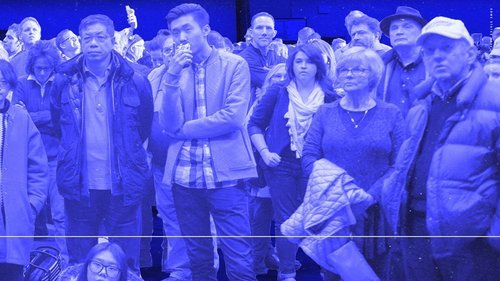Political primaries and caucuses, explained

If two political parties are going to continue to dominate US politics, it means only two people have any real chance in the presidential election every four years: the Republican and the Democrat.
So while a lot of Americans express frustration with the system and say they’d like more options on Election Day, if a voter wants to help decide who those two candidates are, they’ve got to take part in the party primary system.
But the idea of regular voters participating in the primary process is relatively recent. New Hampshire didn’t put candidate names on primary ballots until 1948, and those ballots didn’t start affecting elections until 1952.
It used to be that presidential candidates were selected at party conventions. And it was mostly party members who selected delegates who went to the convention to vote.
Conventions still happen, but they’re mostly ceremonial since primaries have picked every candidate for more than 50 years. Violence broke out at the Democratic convention in 1968, the last time a party picked a candidate who hadn’t won any primaries.
That candidate, Hubert Humphrey, was shellacked on Election Day by Richard Nixon. That year was also the last election in which an independent candidate won any electoral votes in November — the segregationist Alabama Gov. George Wallace won five states in the South.
A lot has changed since then, but US politics hasn’t gotten any less confusing.
Every state conducts their own primary or caucus and none of them do it exactly the same way.
Caucuses are more like neighborhood meetings than a traditional primary. People show up and actually lobby for their candidates. Some new changes in 2020 will allow party members to take part in a “virtual caucus” before caucus day.
Some states have open primaries — meaning anyone can take part in the primary, even if they aren’t registered party members.
Other states have closed primaries — meaning you have to join the party in order to vote.
And some states — like California — are experimenting with completely nonpartisan primaries, although not at the presidential level. In a nonpartisan primary, all the candidates from all the parties take part and the top two vote-getters on primary day, regardless of their party affiliation, square off on Election Day.
Republicans in several states are moving to cancel their primaries altogether in an effort to cut off any opposition within the GOP to President Donald Trump.
The action kicks off in 2020 with Iowa’s caucuses on February 3. New Hampshire’s primary follows on February 11, and then things kick into high gear with Super Tuesday on March 3. The primaries don’t wrap until early June.
That’s why candidates set up camp in early primary states like Iowa and New Hampshire, South Carolina and Nevada in the months — years for some candidates — before the primaries and caucuses get underway.
If a candidate banks on Iowa and doesn’t win the caucuses, they might have to drop out — though a surprising finish in New Hampshire can turbocharge candidates who lag in Iowa. Bill Clinton was the last candidate to win neither of those two and still become President. He spun a second-place primary finish in New Hampshire into a comeback narrative.
In 2016, Hillary Clinton got early support from many party insiders, giving her an edge against Bernie Sanders. In 2020, Democrats have changed the rules to make it more Democratic and give primary voters more voice than party bigwigs. But the party bigwigs, or superdelegates, still have a lot of sway at the Democratic convention.
That’s important since more Americans consider themselves to be independents than Republicans or Democrats, even though the parties have complete control over the presidential process.
